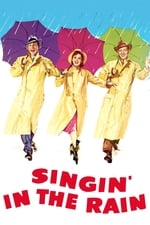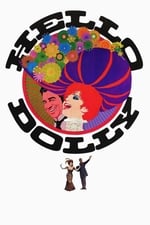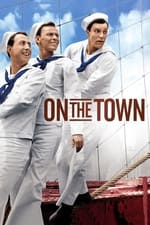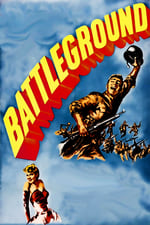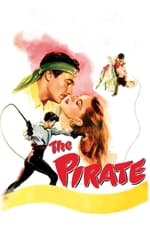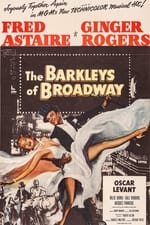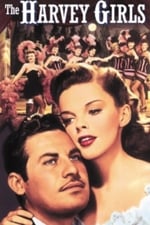Personal Info
Known For Sound
Known Credits 47
Gender Male
Birthday February 13, 1908
Day of Death April 24, 1971 (63 years old)
Place of Birth New York City, New York, USA
Also Known As
- Leonard George Hayton
- The Lennie Hayton Orchestra
Content Score
63
We're so close, yet so far.
Login to report an issue
Biography
From Wikipedia, the free encyclopedia
Leonard George "Lennie" Hayton (February 14, 1908 – April 24, 1971) was an American musician, composer, conductor and arranger. Hayton's trademark was the wearing of a captain’s hat, which he always wore at a rakish angle.
Hayton was born in New York City, New York, to a Jewish family. The son of a Manhattan restaurateur, he developed a penchant for the piano when six years old, showing unusual interest in the early classics from the rolls of the family player piano. Although neither of his parents was a tutored musician, both were keen followers of the concert hall. Hayton attended many concerts with them. His parents disliked "Jazz" and it was not until Hayton was 16 that he really discovered it. He left high school to become pianist with the Broadway Hotel Orchestra of Cass Hagen, a boyhood friend.
While playing at the Park Central, Hayton was heard by Paul Whiteman and immediately engaged by him in April 1928 as second pianist, playing piano and celeste as well as acting as a part-time arranger. Whilst with the Paul Whiteman orchestra, he played with musicians such as Frankie Trumbauer, Bix Beiderbecke, Red Nichols and Joe Venuti. He also became friendly with Bing Crosby, then a member of The Rhythm Boys. Hayton's involvement with Bing Crosby continued and he was made musical director for the singer's film Going Hollywood (1933) which was a Metro-Goldwyn-Mayer production. This was to be the start of a major career for Hayton in Hollywood. He continued to work with Crosby on radio (Bing Crosby Entertains) and record for a while but in 1940 he became a musical director for Metro-Goldwyn-Mayer and guided it through its prime years as forerunner of the movie musical. Up until his retirement from the post in 1953, he racked up four Academy Award nominations: for the Judy Garland musicals The Harvey Girls (1946) and The Pirate (1948). Hayton won the Academy Award for music for On the Town with Roger Edens in 1950.
Lennie Hayton's first marriage was to Helen Maude Gifford, also named Bubs Gelderman, who died in 1943. Lennie Hayton met Lena Horne when both were under contract to MGM and married her in December 1947 in Paris. Throughout the marriage, Hayton also acted as Horne’s music director. Facing the stresses and pressures of an interracial relationship, which was still relatively rare in that time period, Hayton and Horne had a tumultuous marriage. She later admitted in a 1980 Ebony interview she had married Hayton primarily to advance her career, and cross the "color-line" in show business, but had learned to love him very much. Horne and Hayton were separated for most of the 1960s. Always a heavy drinker and smoker, Hayton died of heart disease while separated from Horne, in Palm Springs, California in 1971. He was buried in the Hollywood Forever Cemetery in Hollywood, California.
From Wikipedia, the free encyclopedia
Leonard George "Lennie" Hayton (February 14, 1908 – April 24, 1971) was an American musician, composer, conductor and arranger. Hayton's trademark was the wearing of a captain’s hat, which he always wore at a rakish angle.
Hayton was born in New York City, New York, to a Jewish family. The son of a Manhattan restaurateur, he developed a penchant for the piano when six years old, showing unusual interest in the early classics from the rolls of the family player piano. Although neither of his parents was a tutored musician, both were keen followers of the concert hall. Hayton attended many concerts with them. His parents disliked "Jazz" and it was not until Hayton was 16 that he really discovered it. He left high school to become pianist with the Broadway Hotel Orchestra of Cass Hagen, a boyhood friend.
While playing at the Park Central, Hayton was heard by Paul Whiteman and immediately engaged by him in April 1928 as second pianist, playing piano and celeste as well as acting as a part-time arranger. Whilst with the Paul Whiteman orchestra, he played with musicians such as Frankie Trumbauer, Bix Beiderbecke, Red Nichols and Joe Venuti. He also became friendly with Bing Crosby, then a member of The Rhythm Boys. Hayton's involvement with Bing Crosby continued and he was made musical director for the singer's film Going Hollywood (1933) which was a Metro-Goldwyn-Mayer production. This was to be the start of a major career for Hayton in Hollywood. He continued to work with Crosby on radio (Bing Crosby Entertains) and record for a while but in 1940 he became a musical director for Metro-Goldwyn-Mayer and guided it through its prime years as forerunner of the movie musical. Up until his retirement from the post in 1953, he racked up four Academy Award nominations: for the Judy Garland musicals The Harvey Girls (1946) and The Pirate (1948). Hayton won the Academy Award for music for On the Town with Roger Edens in 1950.
Lennie Hayton's first marriage was to Helen Maude Gifford, also named Bubs Gelderman, who died in 1943. Lennie Hayton met Lena Horne when both were under contract to MGM and married her in December 1947 in Paris. Throughout the marriage, Hayton also acted as Horne’s music director. Facing the stresses and pressures of an interracial relationship, which was still relatively rare in that time period, Hayton and Horne had a tumultuous marriage. She later admitted in a 1980 Ebony interview she had married Hayton primarily to advance her career, and cross the "color-line" in show business, but had learned to love him very much. Horne and Hayton were separated for most of the 1960s. Always a heavy drinker and smoker, Hayton died of heart disease while separated from Horne, in Palm Springs, California in 1971. He was buried in the Hollywood Forever Cemetery in Hollywood, California.
Sound
|
||||||||||||||||||||||||||||||||||||||||||||||||
|
||||||||||||||||||||||||||||||||||||||||||||||||
|
||||||||||||||||||||||||||||||||||||||||||||||||
|
||||||||||||||||||||||||||||||||||||||||||||||||
|
||||||||||||||||||||||||||||||||||||||||||||||||
|
||||||||||||||||||||||||||||||||||||||||||||||||
|
||||||||||||||||||||||||||||||||||||||||||||||||
|
||||||||||||||||||||||||||||||||||||||||||||||||
|
||||||||||||||||||||||||||||||||||||||||||||||||
|
||||||||||||||||||||||||||||||||||||||||||||||||
|
||||||||||||||||||||||||||||||||||||||||||||||||
|
||||||||||||||||||||||||||||||||||||||||||||||||
|
||||||||||||||||||||||||||||||||||||||||||||||||
|
||||||||||||||||||||||||||||||||||||||||||||||||
|
||||||||||||||||||||||||||||||||||||||||||||||||
|
||||||||||||||||||||||||||||||||||||||||||||||||
|
Crew
|
